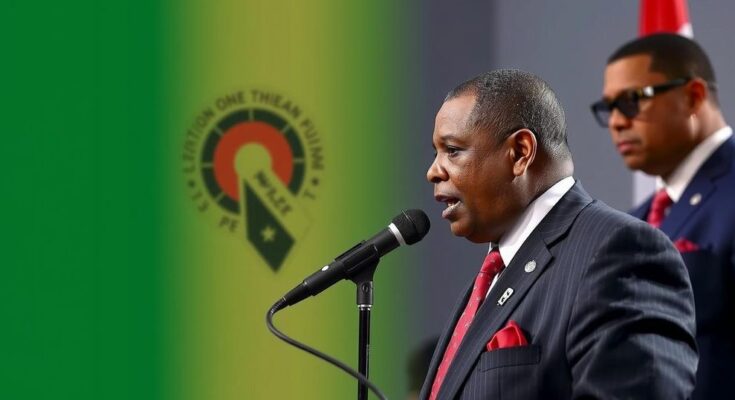Namibia will hold its presidential election this Wednesday, with SWAPO’s Netumbo Nandi-Ndaitwah potentially becoming the first female African president. Political analyst Rui Tyitende discusses the election’s stakes and top candidates’ agendas as the nation reflects on 34 years of independence. This election could signal a shift in political power away from SWAPO after three decades of rule.
In Namibia, citizens are preparing to cast their votes on Wednesday for the presidential election and the National Assembly, marking a significant moment as they approach 34 years of independence. The ruling party, SWAPO (South West Africa People’s Organization), is vying to maintain its dominance, with their candidate, Netumbo Nandi-Ndaitwah, poised to potentially become the first female African president. Political analyst Rui Tyitende highlights the critical issues at stake in this election, particularly the agendas of the leading candidates. The outcome could represent a pivotal shift in Namibia’s political landscape, challenging the long-standing rule of the SWAPO party.
The current election cycle in Namibia holds substantial historical significance, being the seventh presidential election since the nation attained independence in 1990. SWAPO, which has been in power for more than three decades, is facing increased scrutiny as voters express dissatisfaction with certain policies and governance issues. This election not only reflects the citizens’ desire for a change in leadership but also embodies broader shifts within the African political context, particularly in regard to gender representation in leadership roles.
The upcoming Namibian election presents a critical juncture for the nation, as voters will determine whether to maintain SWAPO’s longstanding dominance or to usher in a new political era with fresh leadership. Candidates’ visions for the future of Namibia, particularly regarding women’s representation and ongoing socio-economic challenges, will be paramount in influencing the electorate’s decision. As citizens prepare to vote, the implications of their choices will resonate well beyond the immediate election results.
Original Source: www.voaafrica.com




